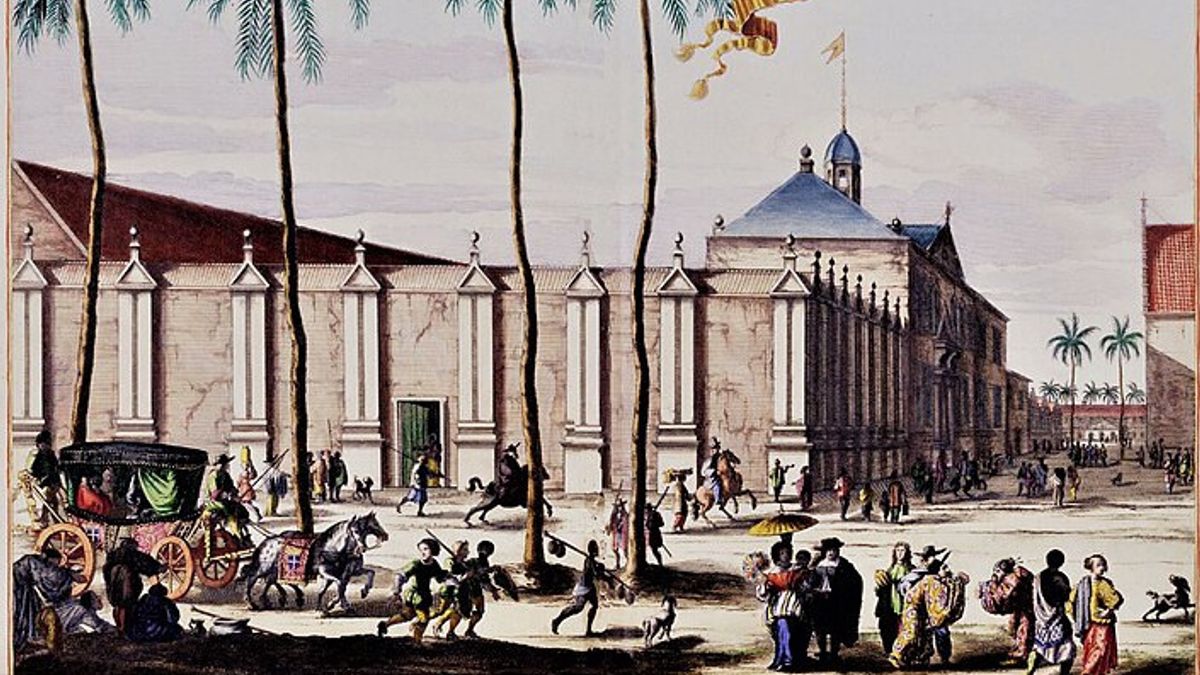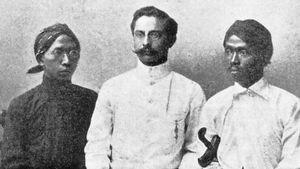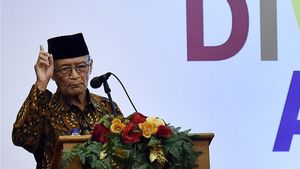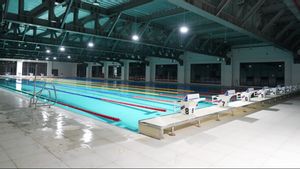JAKARTA - The presence of a Dutch trading partnership, the VOC, is often considered a savior. Anyone who is tired of living in poverty in the Netherlands, can join the Company. They will be placed in a colony, including in Batavia (now: Jakarta).
Life like a king and a rich man is a guarantee. However, problems arise. The age of the Dutch in tropical countries is relatively short. Many of them are aging and live alone. The Company is in tactics. The social problem is 'treated' by building many nursing homes.
The success of the VOC in the spice trade was greeted with great fanfare. The Dutch side also saw a competitive like hope. Instead of the Company only bringing profits to Dutch businessmen, the presence of the trade partnership actually transformed into a machine to change the fate of the commoners.
The poor in the city, from orphans and those without education, began trying their luck by joining the Company. Everything because they enter the Company is not difficult. As long as they are not Catholics, they have a great chance of becoming Company employees.
Their affairs will be placed in dangerous colony areas, no matter. The only thing they think about is how to escape poverty. Thankfully they can be placed in the center of the Company's power in Batavia.
The narrative is because life in Batavia is completely guaranteed. They are used as number one residents. Their salary may not be large, but additional income (corruption) can be more than sufficient. Compeni employees can build everything in Batavia, from big houses to slave.
Foya-foya lives such as parties can be held at every opportunity. Something they would not be able to get if they lived in the Netherlands. Maybe in the past no one wanted to live retired in Batavia. They chose to go home.
Over time the changes began to come. They actually lived a life of luxury in the colony. They live like kings. This condition lasted for quite a long time.
SEE ALSO:
But most of those who survived made the archipelago their permanent hometown. In the Netherlands they are mostly in the poor class and they come to the Indies (now: Indonesia) as sailors and soldiers, hoping to get good luck in Asia. Only a few succeeded, and for most of them, once they managed to become high-ranking officials in the Far East, returning to the Netherlands was not attractive.
In Asia they live like kings; in the Netherlands they are ordinary citizens, eliminated from the caste of regents (officials), the oligarchic rulers who control the Republic. After all, many Dutch legally marry native women, and for social reasons the directors try to prevent the emigration of the natives to Europe. There are also those who have an interest in staying in the East, said Bernard HM Vlekke in the book Nusantara (2008).
Living like a king and rich is promising. However, the only problem that VOC employees will face is living an aging life alone. Many of the Company employees who initially came to bring their relatives to Batavia and then lost their mother-in-law, brother-in-law, to children.
The root of the problem is the Dutch and the tropical climate has never been friendly. Those who came could have been a few months after arriving dead. This condition makes the Company's employees age living alone and sickly. They didn't even know.
This condition makes those who were once rich and then fell poor. All the funds they have are used to finance them in the old age. The cost ran out over for a long time and the elderly lived alone because they were waiting for death.
Kompeni also took a stand. They see the phenomenon of the elderly living alone as a social problem that must be solved. Moreover, most of the Company's officials come from devout Calvinism followers. They feel they have an obligation to take care of others.
The idea of building nursing homes has been carried out since the 1680s. Sick, old and helpless employees will be transported to nursing homes. In fact, they are transported along with the remaining assets. The assets will be auctioned off and the money donated to nursing homes.
Different conditions experienced by the elderly are not severe enough. They will be left at home. However, the Company remains responsible for providing monthly compensation. The nursing homes that are attended in Batavia can even accommodate up to 300 elderly people by 1725. The construction of nursing homes was then followed by ethnic Chinese groups for their people in Batavia.
The study of building a nursing home is considered by them an effort that is enough to help the elderly to enjoy their old days. Even though the nursing home is built far from comfortable. Dirty rooms and limited facilities are a problem. This fact sometimes makes the elderly desperately not want to be evacuated to nursing homes. Some actually choose to age alone until their property runs out.
For the people of Batavia at that time, the presence of poor people, shelters, nursing homes, mental hospitals, or whatever their names are, is the answer to a number of problems in society. Although often at the expense of the person concerned.
"For many residents, the picture of a dirty building full of elderly and elderly people, mentally ill people and alcohol addicts is all terrible enough that they always try to get monthly compensation from the Diaconi Council cash, rather than having to enter the building," said historian Hendrik E. Niemejier in the book Batavia: Colonial Society of the XVII Century (2012).
The English, Chinese, Japanese, Arabic, and French versions are automatically generated by the AI. So there may still be inaccuracies in translating, please always see Indonesian as our main language. (system supported by DigitalSiber.id)














